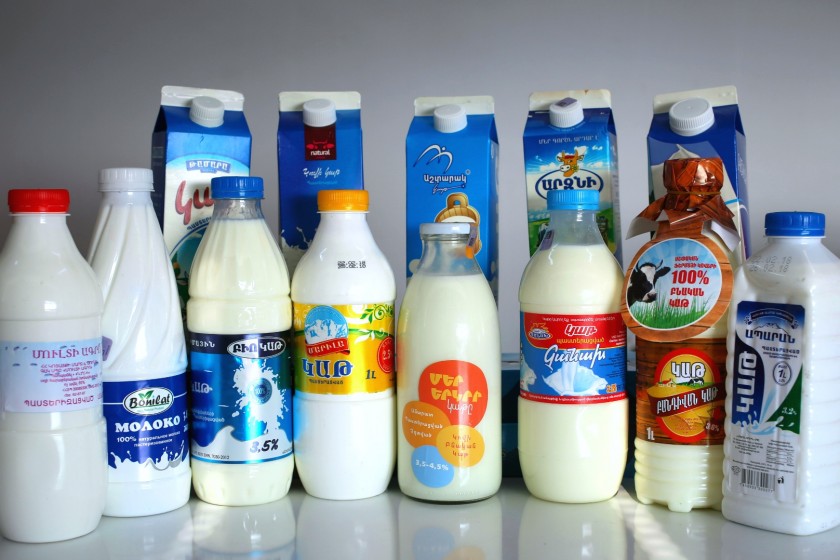
Staphylococcus Aureus and Other Microbial Violations: Armenia's Local Milk Testing Results
Tatev Khachatryan
In February, Hetq sent milk samples of thirteen Armenian manufacturers for testing, and five of them were found to contain Escherichia coli bacteria, staphylococcus aureus, vegetable oil, and higher than acceptable levels of MAFAM.
The testing was carried out jointly with the State Food Security Service (SFSS).
Hetq purchased the samples from shops, while the SFSS got samples from workshops.
Milk is used in almost every Armenian household. Normally, it should contain a number of essential ingredients such as proteins, fats, carbohydrates, vitamins and minerals.
There are several decisions and legal acts regulating the safety of dairy products in Armenia, like RA Government Decision N 1925 on Milk, Dairy Products and Their Production of December 21, 2006 and several technical regulations.
Vegetable oil shouldn’t be used in the production of whole milk: it is not easily digested by the human body, though it’s cheaper for producers who want to make more money.
A EAC (Eurasian Conformity) label is necessary for the sale of goods within the Eurasian Economic Union (EAEU), particularly important in case of high-risk food. According to a decision of the Armenian government, milk is high-risk food. (Armenia is an EAEU member).
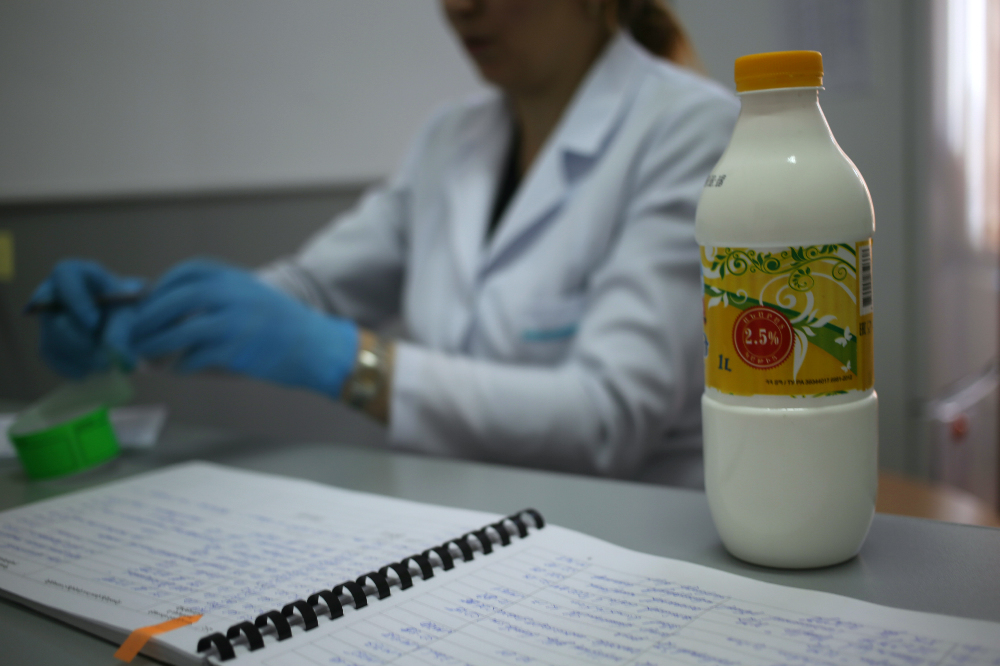
Yerevan’s Standard Dialog LLC Laboratory did the testing for Hetq. None of the milk samples had passed its expiration date. The preliminary list of samples had been clarified with the SFSS.
The SFSS did the sampling a few days earlier. Their testing was carried out in the Republican Veterinary-Sanitary and Phytosanitary Laboratory Services Center (RVSPCLS) SNCO.
SAMPLE N1
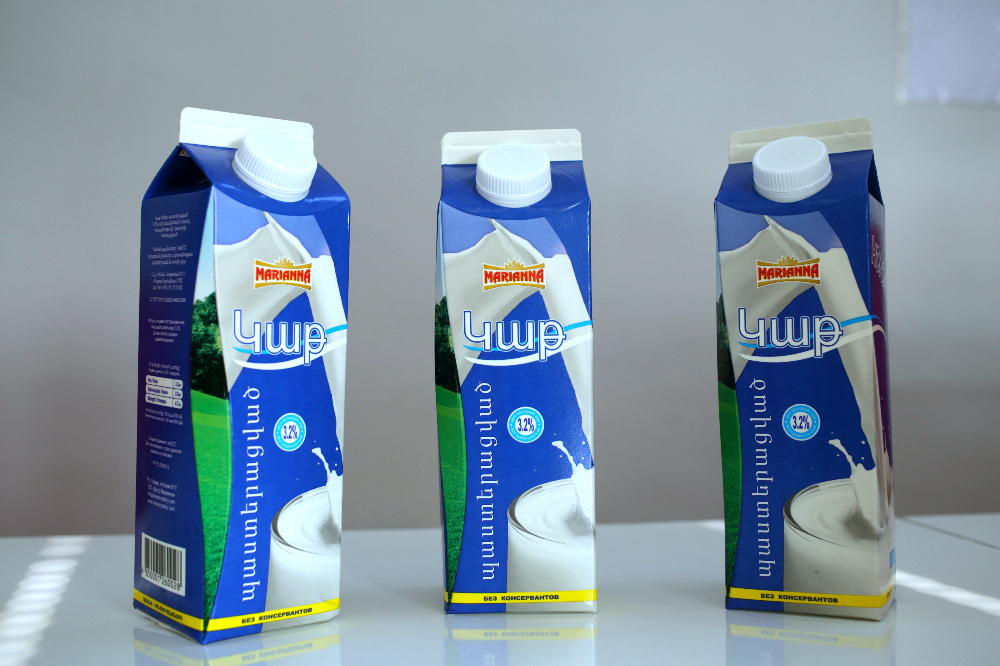
Doustr Marianna’s pasteurized milk is labeled to contain cow's normalized milk, and 3.2% fat.
The label says the product is made according to technical conditions, where the manufacturer can set any requirements for the quality and composition of the product. In addition, it complies with the Armenian requirements and has a EAC conformity mark.
The testing showed that Marianna's pasteurized milk is in line with the established norms and is suitable for use in food.
The SFSS testing showed that this product has a discrepancy only in the fat content (Hetq did not check this indicator), which was actually 2.4% - 0.8% lower than written on the label.
This is a violation of the Law on Food Safety, since the ingredients don’t correspond to what appears on the label.
Thus, it is considered a bogus product.
SAMPLE N2
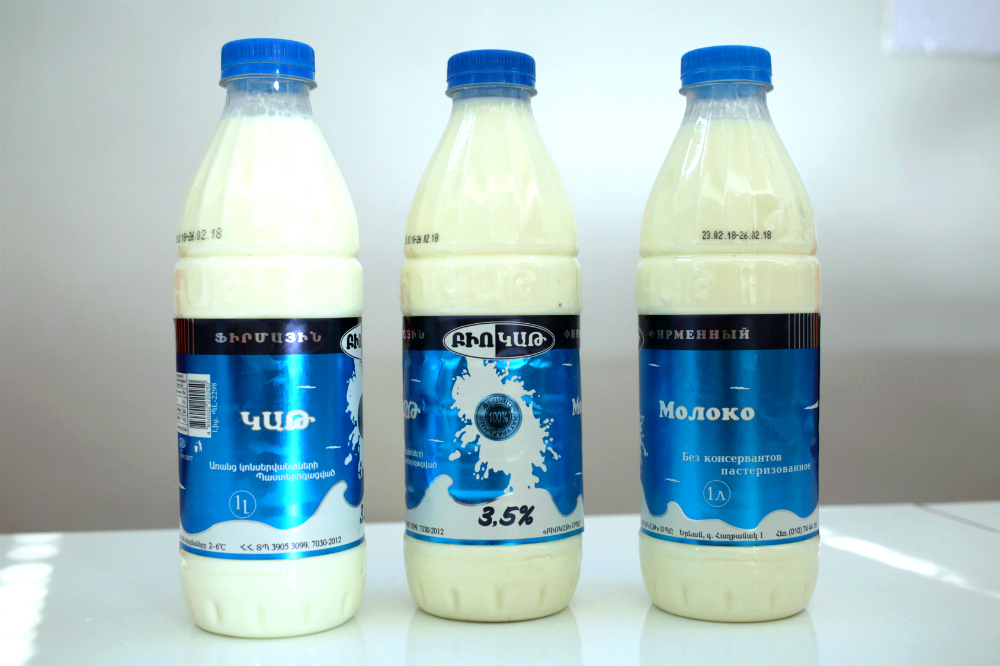
Biokat company’s pasteurized milk is labeled as "100% natural", containing pure cow's pasteurized milk, 3,5% fat, corresponding to Armenian standards. However, it has no EAC conformity mark, which is a violation of requirements.
The testing showed that Biokat milk contained Escherichia coli bacteria, which indicates non-compliance with sanitary and hygienic norms during production.
Thus, this sample doesn’t comply with the prescribed norms and is unfit for human consumption.
The SFSS testing also showed that this product does not meet the established norms, containing Escherichia coli bacteria and higher than acceptable MAFAM (Mesophilic aerobic and facultative anaerobic microorganisms) levels.
SAMPLE N3
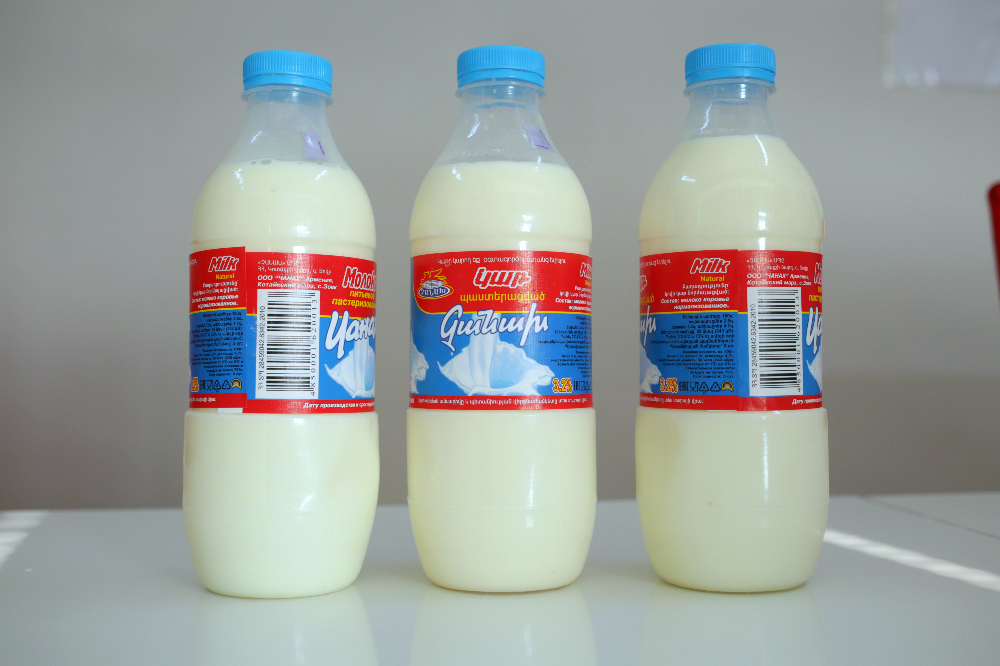
Chanakh company’s pasteurized milk is labeled to contain cow's normalized milk and 3.2% fat.
The label says the product complies with Armenian technical requirements. It also has a EAC conformity mark.
The testing showed that Chanakh's pasteurized milk is in line with the established norms and is suitable for use in food, confirmed by the SFSS testing.
SAMPLE N4
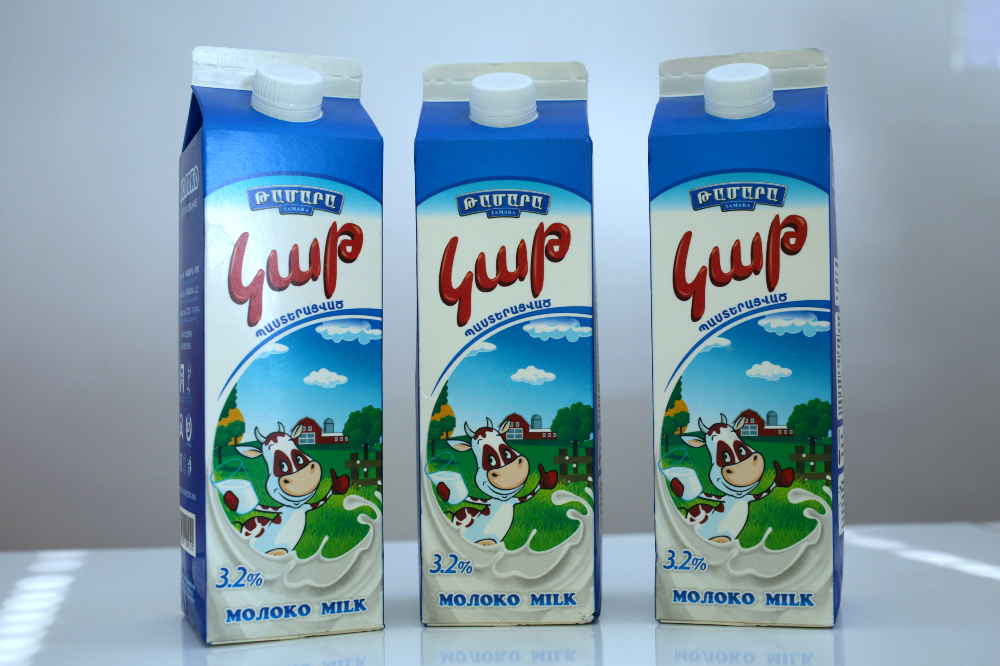
Tamara’s pasteurized milk is labeled to contain cow's normalized milk and 3.2% fat.
The label says the product complies with Armenian technical requirements. It also has a EAC and ISO 9001:2008 conformity marks.
The testing showed that Tamara's pasteurized milk is also in line with the established norms and is suitable for use in food, confirmed by the SFSS testing.
SAMPLE N5
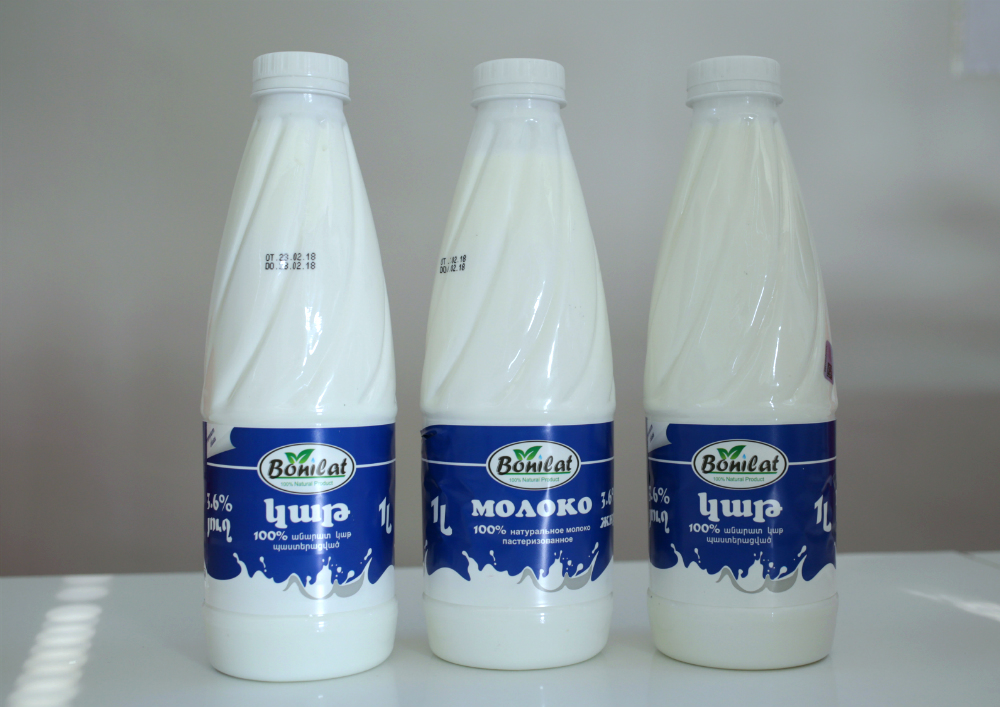
Bonilat’s pasteurized milk is labeled to contain cow's normalized milk, 100% natural, and 3.6% fat.
According to the label, the product complies with Armenian technical requirements. It also has a EAC conformity marks.
The testing showed that Bonilat’s pasteurized milk is in line with the established norms and is suitable for use in food, confirmed by the SFSS testing.
SAMPLE N6
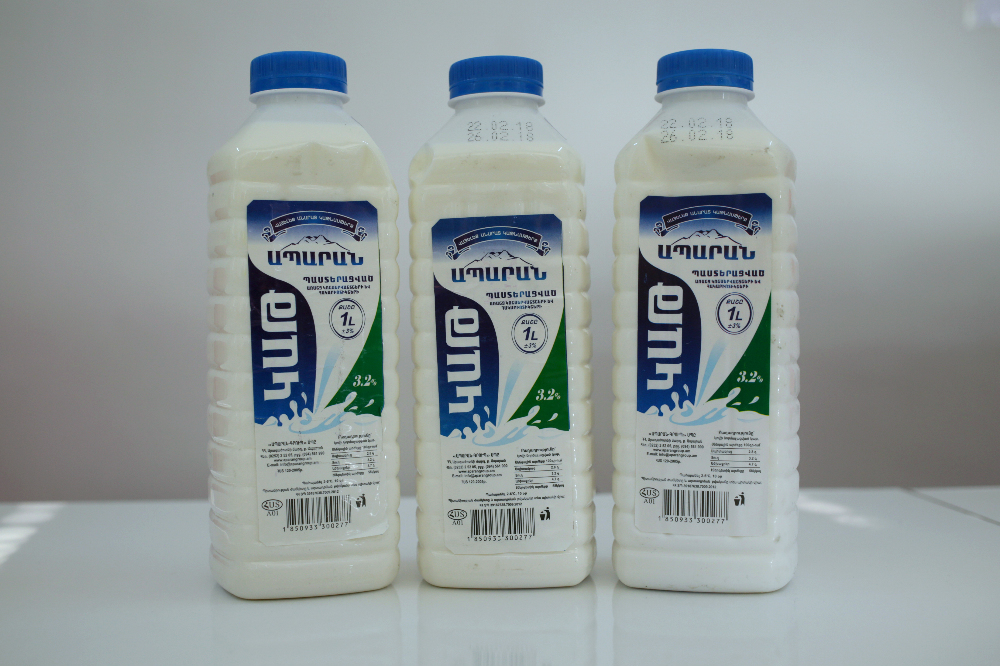
Aparan-Group’s pasteurized milk is labeled to contain cow's normalized milk and 3.2% fat.
It says to comply with Armenian Standards (AST), but has no EAC mark, which is a violation of requirements.
In addition, the milk has two different expiration dates, one printed for four days, and another one - below, on the label, saying "keep at 2-6 ° C, for 10 days."
This is also a breach of a technical regulation, as well as violation of the Law on Food Safety.
"Enjoy the pure dairy products," says the manufacturer, while the testing result reveals the presence of Escherichia coli bacteria.
Moreover, MAFAM levels exceed norms by a factor of 20.
Thus, this sample doesn’t comply with the prescribed norms and is unfit for human consumption.
The SFSS testing showed that this product has a discrepancy only in the fat content, which was actually 4.9% - 1,7% higher than written on the label. Thus, it is considered a bogus product.
SAMPLE N7
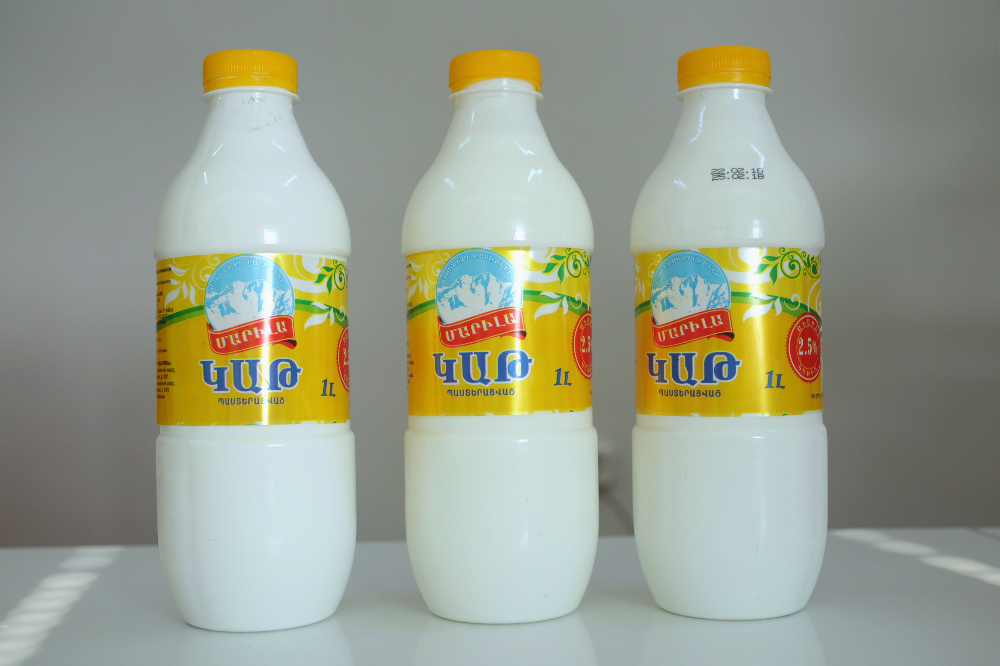
Marila’s pasteurized milk is labeled to contain cow's normalized milk and 2.5% fat.
According to the label, the product complies with Armenian technical requirements. It also has a EAC conformity marks.
The testing showed that Marila’s pasteurized milk is in line with the established norms and is suitable for use in food, confirmed by the SFSS testing.
SAMPLE N8

Tamara and Ani company’s pasteurized milk is labeled to contain cow's normalized milk, and 3.2% fat.
According to the label, the product complies with Armenian technical requirements. It also has AST, ISO 2200: 2005 and EAC conformity marks.
The testing showed the presence of vegetable oil, which is not mentioned on the label.
Thus, it is considered a bogus product.
The SFSS testing, however, found no vegetable oil in the sample of the same date and said it was in line with the prescribed norms.
Tigran Shaljyan, Deputy Director of Production at Tamara and Ani, told Hetq he didn’t “believe” in any of these testings and claimed that they did not use vegetable oil, otherwise they would mark it on the label.
However, one frozen sample of the same milk is still stored and, if necessary, it will be sent to another country, to a reference laboratory. We have also informed Tigran Shaljyan about this.
SAMPLE N9
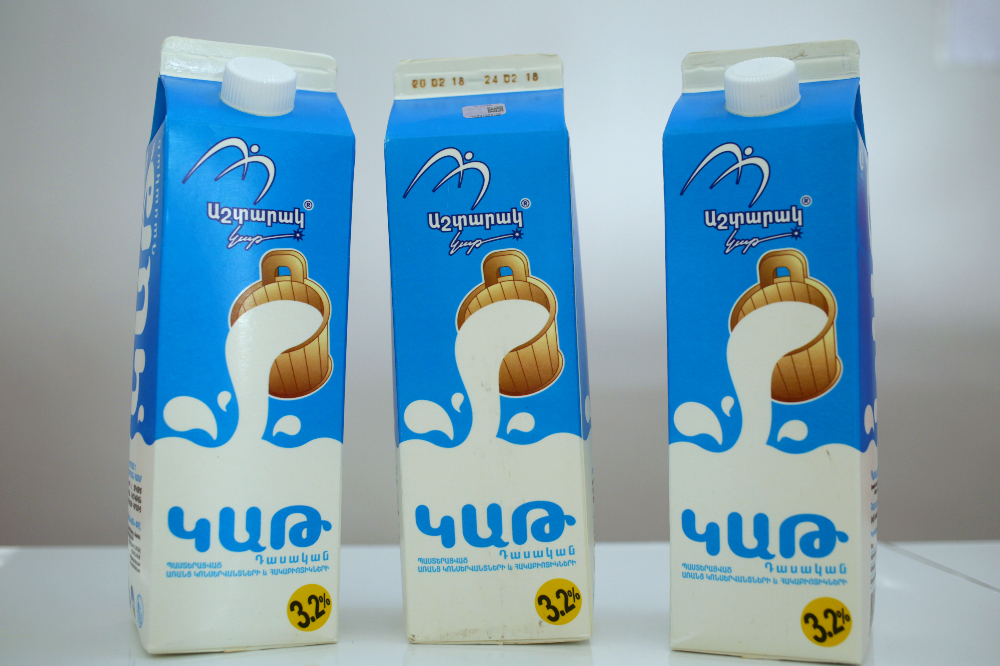
Ashtarak Kat’s pasteurized milk is labeled to contain cow's normalized milk and 3.2% fat.
According to the labeling, the product is made according to Armenian technical requirements and has a EAC conformity mark.
The testing showed that Ashtarak Kat’s pasteurized milk is in line with the established norms and is suitable for use in food.
The SFSS testing showed that this product has a discrepancy only in the fat content, which was actually 2.9% - lower than what’s written on the label.
Though the deviation is quite small, it is still considered to be a violation of the Law on Food Safety, since the ingredients don’t correspond to what appears on the label.
Thus, it is also considered a bogus product.
SAMPLE N10
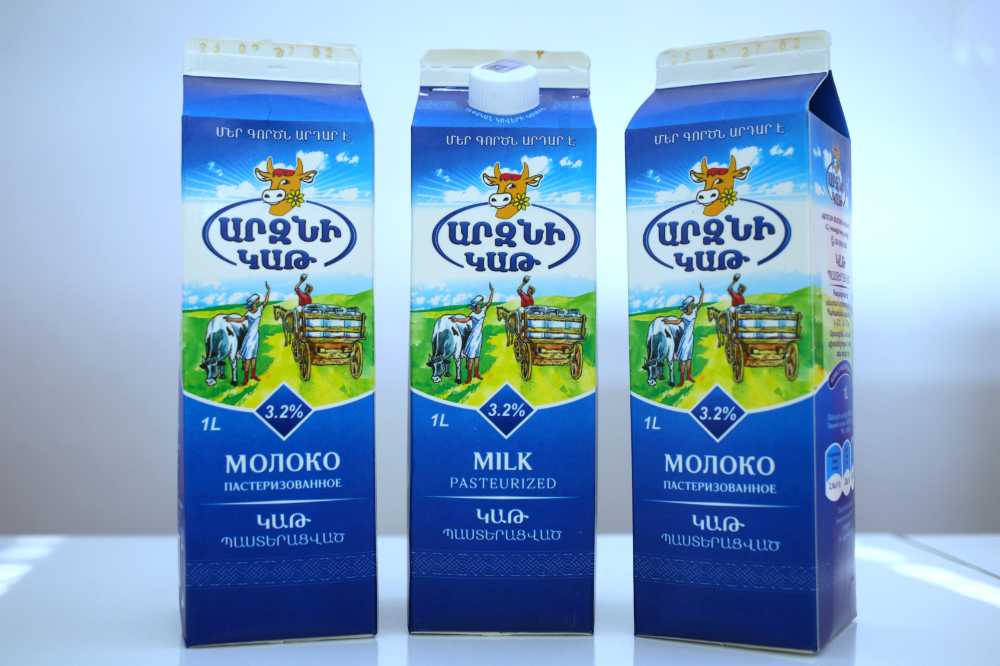
Arzni Kat’s pasteurized milk is labeled to contain cow's normalized milk and 3.2% fat.
According to the labeling, the product is made according to Armenian technical requirements and has an AST and EAC conformity marks.
"Our job is fair," notes the manufacturer of Arzni Kat, while the results of the testing show that the product contains Escherichia coli bacteria and staphylococcus aureus, which is already a pathogenic microorganism. Doctor-bacteriologist Marina Oganova says, "The presence of staphylococcus aureus indicates a poor sanitary and hygienic condition. The main cause of staphylococcus is mastitis. If the cow isn’t cured, naturally, staphylococcus gets into the milk.”
Plus, here MAFAM levels exceed norms by a factor of 15.
Thus, this milk doesn’t comply with the established norms and is not suitable for use.
The SFSS testing showed that Arzni Kat’s pasteurized milk is in line with the established norms and is suitable for use in food.
SAMPLE N11
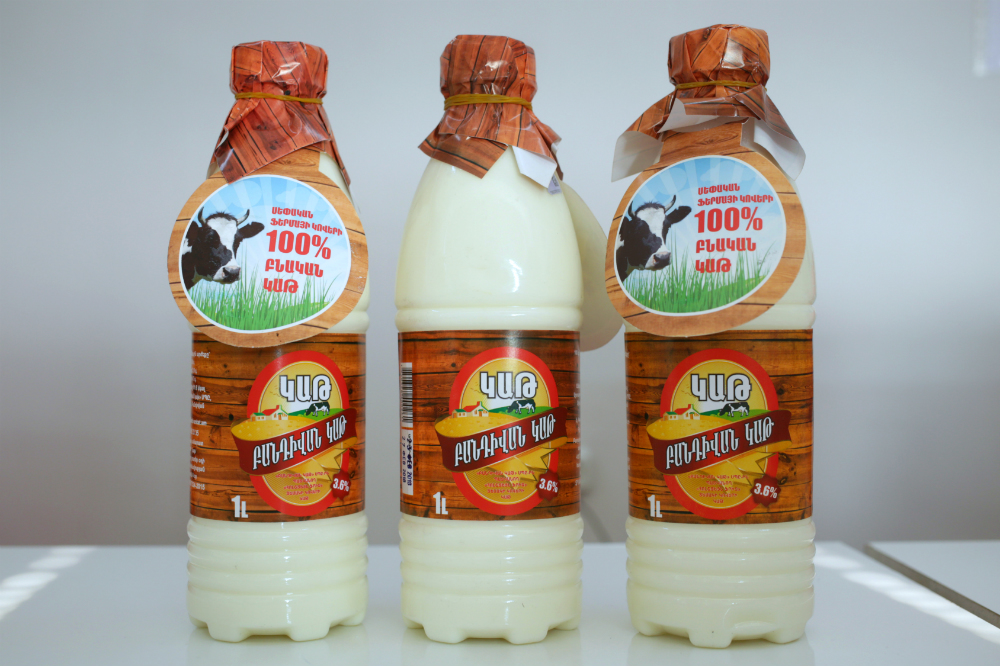
Bandivan Kat’s pasteurized milk is labeled to contain cow's normalized milk and 3.6% fat.
According to the labeling, the product complies with Armenian technical requirements and has a EAC conformity mark.
“100% natural milk” is written on the bottle.
The testing showed that Bandivan Kat’s pasteurized milk is in line with the established norms and is suitable for use in food.
The SFSS testing showed that this product has a discrepancy only in the fat content, which was actually 4% - a bit higher than what’s written on the label.
Though the deviation is quite small, it can also be considered a bogus product.
SAMPLE N12
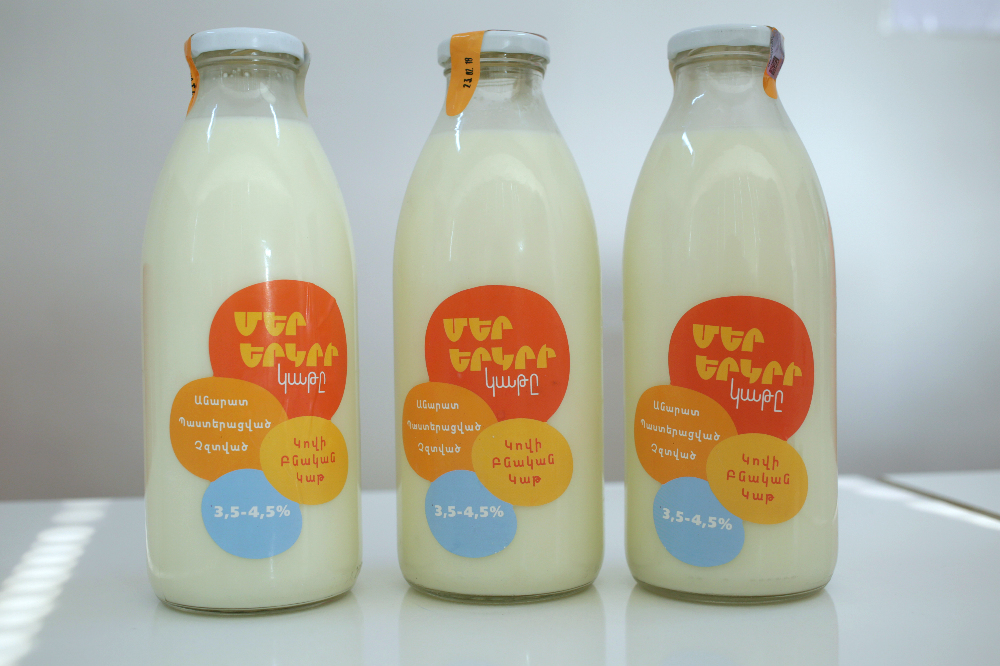
Mer Yerkir’s pasteurized milk is labeled to contain cow's normalized milk and 3.5-4.5% fat.
According to the label, the product complies with GOST requirements. It also has a EAC conformity marks.
The testing showed that Mer Yerkir’s pasteurized milk is in line with the established norms and is suitable for use in food, confirmed by the SFSS testing.
SAMPLE N13
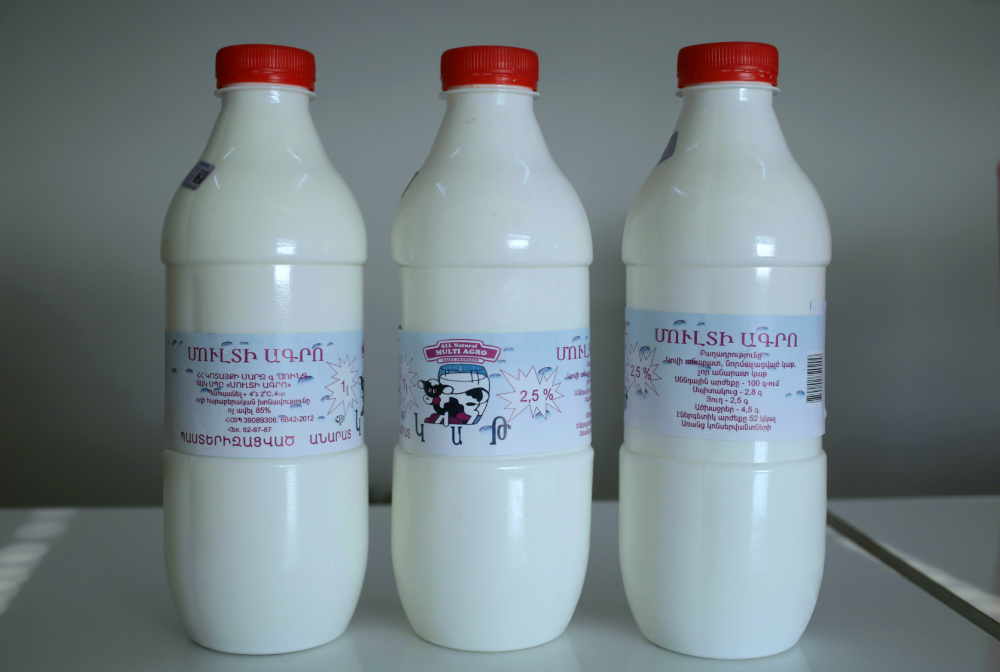
Multi Group company’s Multi Agro pasteurized milk is labeled to contain cow's normalized milk, dry whole milk and 2.5% fat.
According to the label, the product complies with Armenian technical requirements, but has no EAC mark, which is a violation of requirements.
The testing showed the presence of Escherichia coli bacteria.
Thus, this sample doesn’t comply with the prescribed norms and is unfit for human consumption.
The SFSS didn’t test this sample because of a change in the preliminary agreed list. They tested Igit milk instead, finding a fat amount discrepancy.
The SFSS did not want to publish the results of its laboratory findings, and provided only 6 out of the 13 sample results to Hetq.
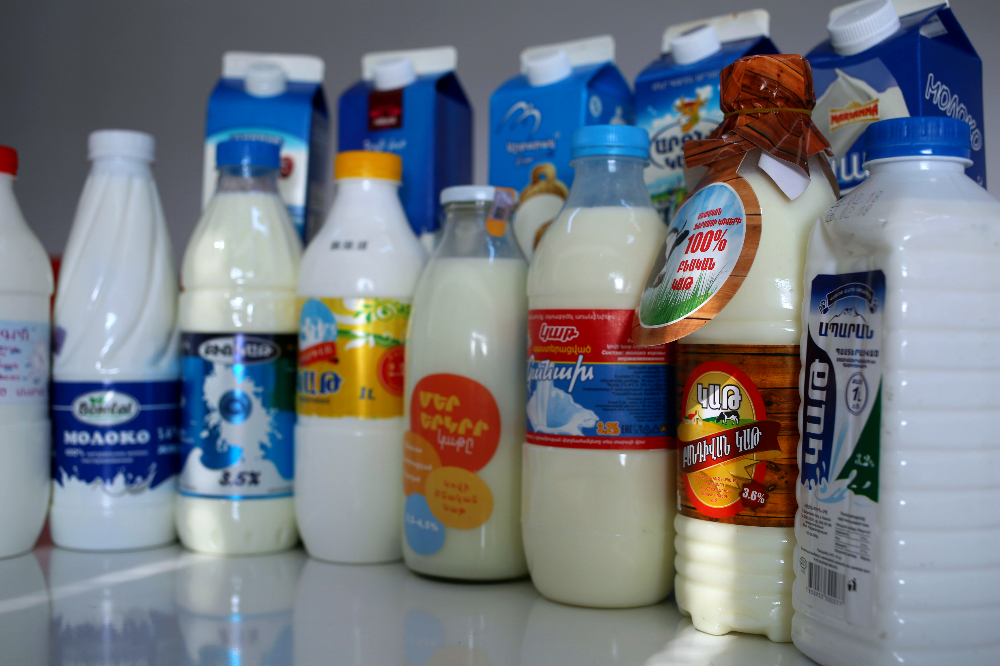
Readers can access Hetq’s laboratory findings here (in Armenian)
Photos: Saro Baghdasaryan
 Videos
Videos Photos
Photos
Comments (9)
Write a comment